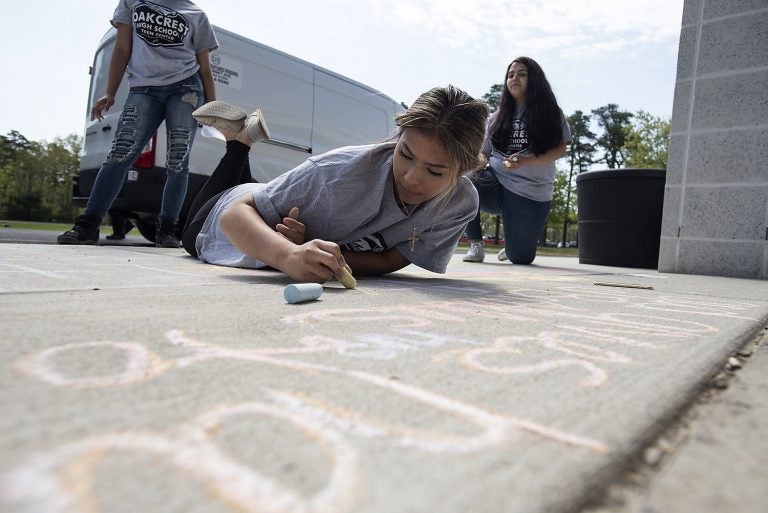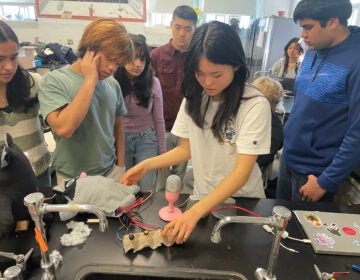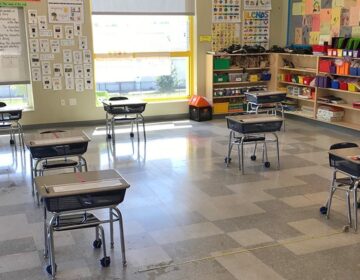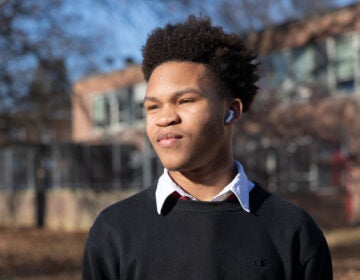N.J. public schools called on to provide better mental health services
A report from the New Jersey School Boards Association finds uneven availability of mental health services at public schools. It says building trust is a key first step.

Sophomore Fatima Saldana, 16, works on her message as National Children's Mental Health Awareness Day is celebrated with students participating in Messages of Hope, which had them writing positive messages in chalk by the school entrance Thursday, May 10, 2018, at Oakcrest High School in Mays Landing, N.J. (Matthew Strabuk/The Press of Atlantic City via AP)
New Jersey’s public schools could better equip themselves to provide mental health services to students, according to a new report.
An analysis from the New Jersey School Boards Association laid out strategies for districts interested in better serving students with mental health issues.
Frank Belluscio, deputy executive director of the New Jersey School Boards Association, said one major factor is getting students to trust staff members.
“That comes down to having a healthy school climate,” Belluscio said. “Students need to have at least one adult in that school building who they feel they can talk to and can trust.”
The report released Tuesday was conceived after the 2018 school shooting in Parkland, Florida left 17 people dead, and amid rising rates of teen suicide.
Sonia Rodrigues-Marto, director of school and community based programs at Rutgers University Behavioral Healthcare, said there are mental health resources available but students do not have equal access to them across the state.
“Location plays a big part of it. But I also think certain areas where there tends to be lower socioeconomic status, more families without medical insurance, families without transportation … there are ongoing challenges and barriers to accessing services,” Rodrigues-Marto said.
The report suggested that schools implement social-emotional learning, a method for students to learn how to understand and discuss their emotions. It also recommended strategies such as conducting emotional climate surveys and enabling access to counseling.
New Jersey schools are now required to provide mental health education to grades K-12 under a law signed by Gov. Phil Murphy earlier this year.
WHYY is your source for fact-based, in-depth journalism and information. As a nonprofit organization, we rely on financial support from readers like you. Please give today.




